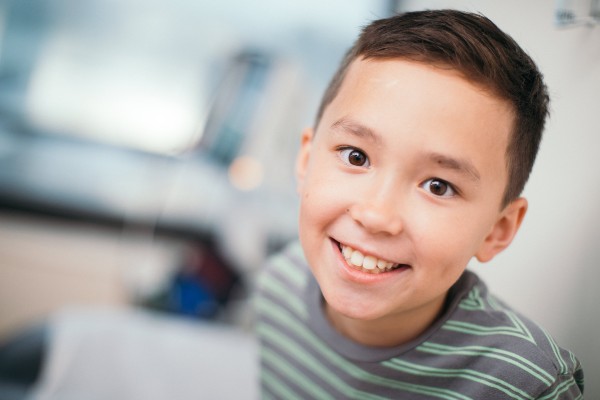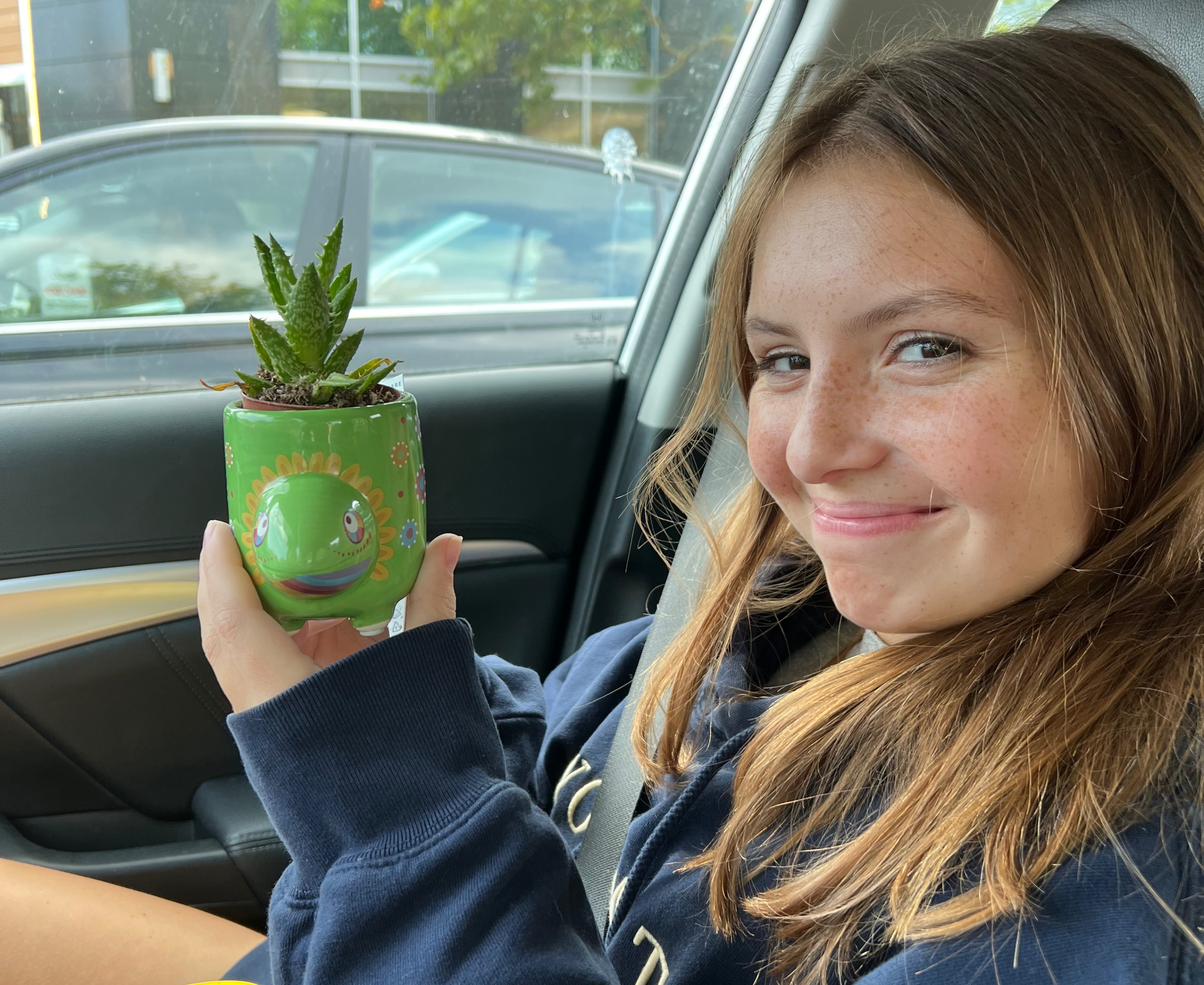Condition
Pediatric Crohn's Disease
What You Need to Know
Crohn’s disease is a type of inflammatory bowel disease (IBD) that in most cases affects the small intestine but may affect the whole digestive tract. It is characterized by redness, swelling (inflammation) and sores along the digestive tract.
Key Features
- Chronic (long-term) condition which may come and go throughout life
- Incurable, but symptoms may be helped by:
- Diet changes
- Medication
- Surgery
Symptoms
Each child’s symptoms may vary. Common symptoms include:
- Belly (abdominal) pain, often in the lower right area
- Loose stool (diarrhea), sometimes bloody
- Rectal bleeding
Mental Health Impact
Your child’s mental health needs to be watched, as Crohn’s disease can result in emotional problems such as depression and anxiety. Seek professional help when needed.
Schedule an Appointment
Our pediatric specialists provide personalized care for your child’s physical, mental and emotional health needs. Meet our providers and schedule an appointment today.
Frequently Asked Questions
What is Crohn's disease in children?
Crohn's disease is when there is redness, swelling (inflammation) and sores along the digestive tract. It is part of a group of diseases known as inflammatory bowel disease, or IBD.
Crohn's disease is a long-term (chronic) condition. It may come and go at different times in your child’s life. In most cases, it affects the small intestine, most often the lower part called the ileum. In some cases, both the small and large intestines are affected.
Sometimes the inflammation may affect the whole digestive tract. This includes the mouth, the food pipe (esophagus), the stomach, the first part of the small intestine (duodenum), the appendix and the anus.
What causes Crohn's disease in a child?
Experts don’t know what causes Crohn's disease. It may be that a virus or bacteria affects the body's infection-fighting system (immune system). The immune system may have an abnormal inflammation reaction in the intestinal wall that doesn’t stop.
Many children with Crohn's disease have an abnormal immune system. But experts don’t know if immune problems cause the disease. They also don’t know if Crohn's disease may cause immune problems.
Which children are at risk for Crohn's disease?
Crohn's disease may happen at any age. It most often affects people ages 15 to 35. But Crohn's may also occur in young children. It affects both males and females equally.
Children or teens may be more at risk for Crohn's disease if they:
- Have a family history of Crohn's disease. In most cases, this is a close relative such as a parent, sister or brother.
- Are white
- Are American Jews of European descent
- Live in developed countries, in cities, and in northern climates
- Smoke
What are the symptoms of Crohn's disease in a child?
Each child’s symptoms may vary. Symptoms may include:
- Belly (abdominal) pain, often in the lower right area
- Loose stool (diarrhea), sometimes bloody
- Rectal bleeding
- Weight loss
- Fever
- Delayed growth
- Joint pain
- A cut or tear in the anus (anal fissure)
- Rashes
Some children may have no symptoms for a long time, even years. This is called being in remission. There is no way to know when remission may occur or when your child’s symptoms will return.
The symptoms of Crohn's disease may look like other health problems. Always see your child's healthcare provider for a diagnosis.
How is Crohn's disease diagnosed in a child?
Your child may be checked for signs of Crohn's disease if your child has had long-term:
- Belly (abdominal) pain
- Loose stools (diarrhea)
- Fever
- Weight loss
- A loss of healthy red blood cells (anemia). This can make your child feel tired.
Your child’s healthcare provider will take a health history and do a physical exam. Other tests for Crohn's disease may include:
- Blood tests. These are done to see if your child has fewer healthy red blood cells because of blood loss. This is called anemia. These tests also check if your child has a higher number of white blood cells. That might mean there is an inflammation problem. Other blood tests can look for abnormal antibodies. The healthcare provider may use this result to help diagnose or classify the disease.
- Stool culture. This is done to see if an infection by a parasite or bacteria is causing the symptoms.
- Endoscopy. This test checks the inside of part of the digestive tract. It uses a small, flexible tube called an endoscope. The tube has a light and a camera lens at the end. Tissue samples or biopsies from inside the digestive tract may also be taken for testing.
- Colonoscopy. This test looks at the full length of the large intestine. It can help check for abnormal growths, inflamed tissue, sores or ulcers, and bleeding. It uses a long, flexible, lighted tube called a colonoscope. The tube is put into your child’s rectum up into the colon. This tube lets the provider see the lining of the colon and take out a tissue sample or biopsy to test it. Your child’s provider may also be able to treat some problems that may be found.
- Biopsy. A tissue sample is taken from the lining of the colon and checked in a lab.
- Upper GI series or barium swallow. This test looks at the organs of the top part of the digestive system. It checks the food pipe (esophagus), the stomach, and the first part of the small intestine (duodenum). Your child swallows a fluid called barium. This is a thick, chalky fluid. It is used to coat the inside of organs so that they will show up on an X-ray. Then X-rays are taken to check the digestive organs.
- Lower GI series or barium enema. This test checks the large intestine, including the colon and rectum. A thick, chalky fluid called barium is put into a tube. It is inserted into your child’s rectum as an enema. Barium coats the organs, so they can be seen on an X-ray. An X-ray of your child’s belly will show if there are any narrowed areas called strictures. It will also show any blockages or other problems.
- CT enterography or MR enterography. These imaging tests look at the small bowel and can show any inflammation or complications.
- Capsule endoscopy. This is a special capsule that your child swallows. The capsule is a camera that takes pictures of the small bowel.
How is Crohn's disease treated in a child?
Crohn's disease is a long-term (chronic) disease. There is no cure for it. But there are some things that can help to control it. Treatment for the disorder has four goals:
- Correct nutritional problems
- Control the swelling and inflammation
- Ease symptoms such as belly pain, diarrhea and rectal bleeding
- Keep complications from occurring. These include tunnels of inflammation to other organs (fistulas) and narrowing of the intestine (stricture) that causes blockages.
Your child’s healthcare provider will create a care plan based on:
- Your child's age, overall health and medical history
- How serious your child’s case is
- How well your child handles certain medicines, treatments or therapies
- If your child’s condition is expected to get worse
- Your opinion and what you would like to do
Your child’s treatment may include the following.
Medicine
Medicines often reduce the inflammation in the colon. This may help ease belly cramps and diarrhea. More serious cases may require steroids, antibiotics, or medicines that affect the body's immune system.
Diet
Making some changes in your child’s diet may help to ease symptoms. In some cases, symptoms are made worse by milk, hot spices, or fiber. Talk with your child’s provider. Your child may use a special meal plan called an elemental diet.
Vitamins
Vitamins may help prevent some problems or help maintain a remission. Because many children with Crohn's don't absorb nutrients normally, vitamin deficiencies are common. Your child may need lab tests to assess the nutrient levels. Talk with your child’s provider about any vitamin supplements. These treatments have risks and may cause harmful side effects.
Nutritional Supplements
Your child’s provider may suggest nutritional supplements or special high-calorie liquid formulas. These may be helpful if your child has delayed growth.
IV or Intravenous feeding
In rare cases, IV feeding may be used for children who need extra nutrition for a short time.
Surgery
Surgery may help Crohn's disease, but it can’t cure it. Surgery may help to reduce long-term symptoms that don’t get better with medicine. Surgery may also fix some problems. These include a blocked intestine, a hole or perforation, a sore or abscess, or bleeding. Types of surgery may include:
- Draining abscesses in or near fistulas. An abscess is a collection of pus or infection. Treatment includes antibiotics, but surgery may be needed.
- Bowel or intestinal resection. The diseased section of intestine is removed. The two healthy pieces of intestine are attached. This surgery shortens your child’s intestines.
- Ostomy. When part of the intestines is removed, a new way of removing stool from the body is created. The surgery to create the new opening is called an ostomy.
What are the complications of Crohn's disease in a child?
Children with Crohn's disease may lose weight because they don’t get enough calories. This can happen because a child:
- May not eat to prevent the pain that is linked to digestion
- May want to eat only favorite foods
- May not absorb nutrients well through the inflamed digestive tract
- Has greater nutritional needs than normal because of the disease
Nutritional supplements or special high-calorie liquid formulas may be suggested. These are often advised if a child has delayed growth.
Crohn's disease may also cause other health problems, such as:
- A blocked intestine
- A type of tunnel, called a fistula, in nearby tissues. This can get infected.
- Rips or tears, called fissures, in the anus
- Problems with liver function
- Gallstones
- A lack of some nutrients, such as calories, proteins and vitamins
- Too few red blood cells or too little hemoglobin in the blood (anemia)
- Bone weakness, either because bones are brittle (osteoporosis) or because bones are soft (osteomalacia)
- A nervous system disorder where legs feel painful, called restless leg syndrome
- Arthritis
- Skin problems
- Eye or mouth redness or swelling (inflammation)
After bowel resection surgery, a condition called short bowel syndrome can occur. It often happens after a large part of the small intestine is removed. The body then may not be able to digest and absorb some vitamins, foods and nutrients, including water. This poor absorption of food and nutrients is called malabsorption. It causes diarrhea. It can also lead to poor growth and development. Common symptoms of malabsorption include:
- Loose stool (diarrhea)
- Large amounts of fat in the stool (steatorrhea)
- Weight loss or poor growth
- Fluid loss or dehydration
- Lack of vitamins and minerals
How can I help my child live with Crohn's disease?
Crohn's disease is a long-term (chronic) condition. It may come and go at different times during your child’s life. Children may have physical, emotional, social and family problems as a result of the disease. It’s important to work closely with your child’s healthcare provider to manage and treat the condition.
Be sure to have the provider check your child’s health on a regular basis. This includes checking your child's:
- Growth
- Nutrition levels
- Bone mineral density
- Risk for infections
- Immunization status
- Any liver, eye or skin problems
- Emotional well-being
Emotional stress can make Crohn's disease worse. Children may be helped by seeing a mental health provider who can teach them stress-reduction techniques. Your child may also have depression or anxiety. This disease can be especially frustrating for teens because flareups can make them more dependent on their parents at a time when they want their independence.
Diet Changes
No special diet has been shown to treat Crohn's disease. Many children with the disorder can eat a fairly normal diet when their disease is stable. Talk with your child’s healthcare provider. When your child is having symptoms, it may be helpful if your child follows these suggestions:
- Eat smaller, frequent meals.
- Limit foods with milk or milk products containing lactose, if there is a history of lactose intolerance.
- Don't eat greasy foods.
- Don't eat certain high-fiber foods such as popcorn, nuts and seeds.
- Don't eat any foods that seem to have triggered symptoms in the past.
- Drink liquids at room temperature.
- Drink liquids between meals, not with meals.
- Stay away from caffeine.
- Don't eat foods with sorbitol, xylitol and mannitol.
- Don't eat sweets, such as candy, cakes and pies.
Don't eat foods that produce more gas, such as:
- Beans
- Peas
- Broccoli
- Onions
- Cauliflower
- Cabbage
Eat foods that have more soluble fiber. This is fiber that absorbs water. Foods that are good sources of soluble fiber include:
- Bananas
- Rice
- Applesauce
- Tapioca
- Oatmeal
Children who have short bowel syndrome after surgery for Crohn's often have problems with diarrhea and malabsorption. Talk with your child’s healthcare provider about how to treat these problems.
Children with short bowel syndrome often need help getting all the nutrition they need. Supplemental liquid feedings are sometimes done using total parenteral nutrition (TPN). TPN is a special mix of glucose, protein, fat, vitamins and minerals. It is given by IV or intravenously in the vein.
When should I call my child's healthcare provider?
Call your child’s healthcare provider if your child has symptoms of Crohn's disease, including:
- Belly pain
- Loose stool
- Rectal bleeding
- Weight loss
- Fever
- Vomiting that continues
- Sores (lesions) or leakage at the anus
Call your child's provider right away if your child has Crohn's disease and regular symptoms change or new symptoms appear.
Meet the Providers Who Treat Crohns Disease
Patient Stories
Departments that Treat Crohn's Disease

Inflammatory Bowel Disease Program
Our pediatric gastroenterology experts provide comprehensive services for children with IBD, including Crohn's disease and ulcerative colitis.

Gastroenterology, Hepatology and Nutrition
Our gastroenterology specialists provide expert diagnosis and treatments for children with digestive, liver and nutrition disorders.

Help Kids and Make a Difference
Invest in future cures for some of life's most devastating diseases. Give today to help more children grow up stronger.







